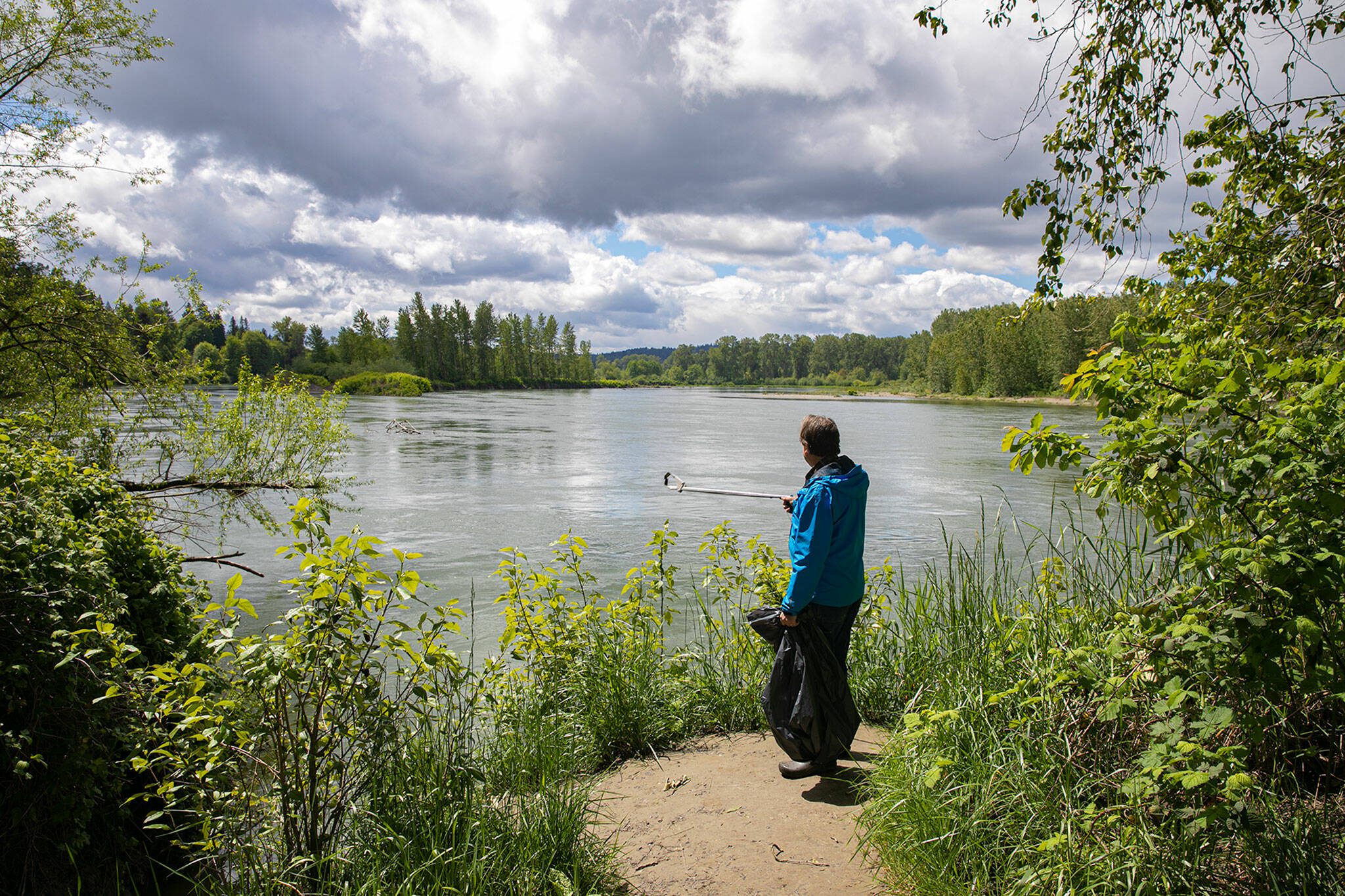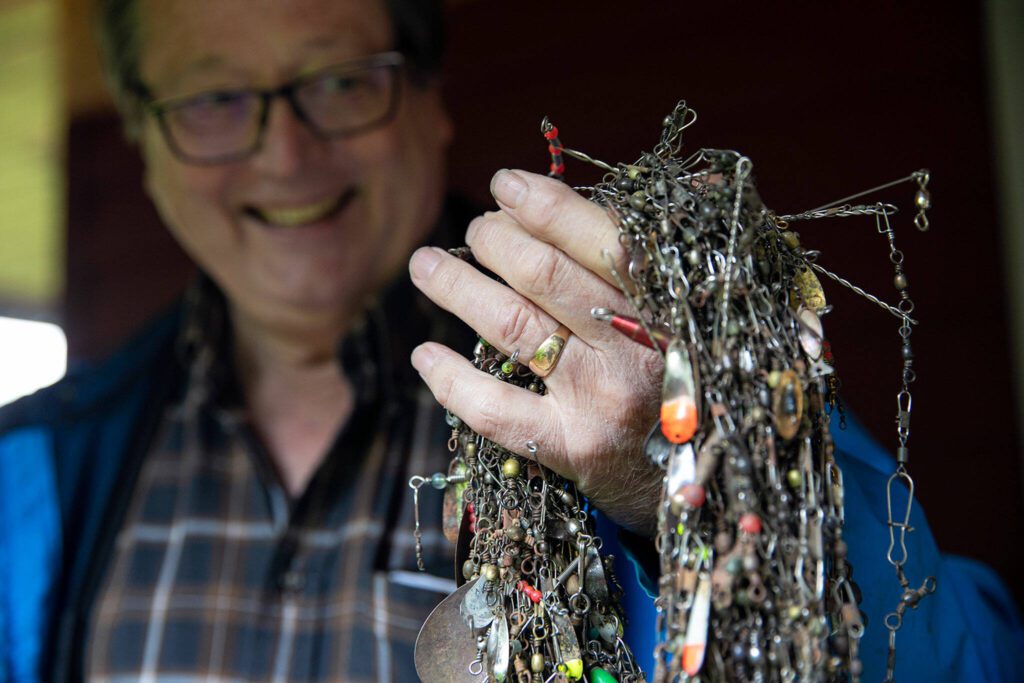EVERETT — Over the past decade, Snohomish resident Doug Ewing, with the help of other local environmental advocates, has filled about 76 pickup truck beds with trash from the Snohomish River.
He and about a dozen volunteers from local sustainability group Green Snohomish typically gather once a month at different river access points. They regularly find fishing lures, bottles and tarps in and around the waterway that stretches from near Monroe out to Everett, where it meets Puget Sound.
“I continue to be concerned about the river,” Ewing said. “It’s not just from the standpoint of the garbage I pick up. I am concerned about the increase in large motor boats that are creating wakes that damage the shoreline, and just the noise of it.”
A new initiative, if passed this summer, would allow Everett officials to hold polluters accountable.
“Communities are kind of playing defense,” when it comes to taking care of local waterways, said Rachel Kurtz-McAlaine, spokesperson for the initiative. “We like to say we’re going on the offense — putting people on notice that if they do something to harm the watershed, they could face a lawsuit.”
Over the past several months, leaders of the political action committee Standing for Washington spearheaded a campaign to grant legal standing for the Snohomish River.
The group gathered around 1,300 signatures from Everett residents in support of the ordinance, Kurtz-McAlaine said. Last week, committee leaders submitted the signed petitions to city and county officials for validation.
If approved, Everett City Council can pass the ordinance as written or put it on the November ballot for a public vote.
Before helping launch Standing for Washington this spring, Kurtz-McAlaine heard a presentation from Earthjustice about a chemical found in the Snohomish River that kills coho salmon.
Tires contain the chemical 6PPD-quinone — a combination of the preservative that helps tires last longer and ozone from the atmosphere.
Last year alone, Ewing helped remove over 20 tires from the Snohomish River.
The city of Everett also allows local citizens to directly enact legislation through “the powers of initiative.”
“You can use direct democracy to create an initiative, as long as you can get others in the community behind your effort,” Kurtz-McAlaine explained.
This opportunity, combined with concerns about contamination in the watershed, motivated Kurtz-McAlaine and others to advocate specifically for the Snohomish River’s legal protection.
Kurtz-McAlaine and other campaign supporters staked out at farmers markets, the Fisherman’s Village Music Fest and other events to collect signatures.
Standing for Washington led two similar campaigns for Budd Inlet, at the southern basin of Puget Sound near Olympia, and the Deschutes River, with headwaters near the foothills of Mount Rainier.
Last month, campaign leaders announced they postponed these initiatives to focus on gathering signatures for the Snohomish River petition.
The Snohomish River ordinance, written by Kurtz-McAlaine, states that the “Snohomish River Watershed possesses the rights to exist, regenerate and flourish, which shall include the right to naturally recharge, the right to naturally flow, the right to water quality necessary to provide habitat for native plants and animals, the right to provide clean water and the right to restoration.”
Under the ordinance, the city would hold violators liable for any damages to the river and require them to pay for restoration work.
The Everett city clerk has 10 days to notify campaign leaders about the status of the initiative, Kurtz-McAlaine said. If unsuccessful this year, Kurtz-McAlaine and others involved in the effort are determined to try again next year and possibly strive for protection of the entire Snohomish watershed — not just the portion in Everett.
Across the world, environmental activists have advocated for ecosystems to hold legal rights, known as the Rights of Nature movement.
Last year, North Carolina representatives proposed a bill that would give legal rights to the Haw River. And a country-wide rights of nature law in Panama led the country’s Supreme Court to declare a copper mine unconstitutional, resulting in the mine’s closure.
To learn more about Standing for Washington’s Snohomish River campaign, locals can go to the committee’s website at standingforwashington.org.
Ta’Leah Van Sistine: 425-339-3460; taleah.vansistine@heraldnet.com; Twitter: @TaLeahRoseV.
Talk to us
> Give us your news tips.
> Send us a letter to the editor.
> More Herald contact information.



























